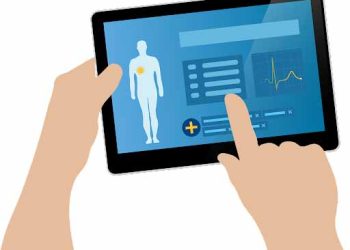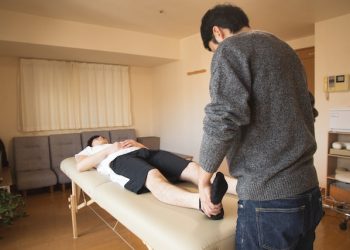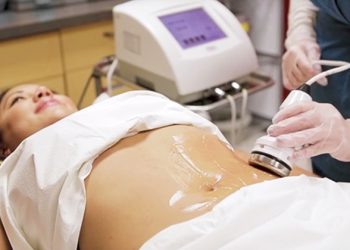
There are several different methods of treating depression. These may include positive coping skills, talk therapy, medication, and TMS (transcranial magnetic stimulation). In this article, we’ll cover the pros and cons of each type of treatment. This article is not intended to be a comprehensive guide to the various treatments available. Rather, it aims to inform and educate patients and their loved ones.
Positive coping skills
If you’re seeking effective treatment for depression, you may want to consider getting help from a professional. Psychological therapies, also known as talking therapies, can help you change negative thinking patterns and increase positive coping skills. In many cases, they can even prevent or treat depression altogether. CBT, for example, is a proven therapy that helps clients monitor their negative thinking patterns and change them. This approach is especially effective for those who experience severe depression.
Aside from therapy, it’s important to learn some self-care techniques. Developing a positive mindset through exercise and meditation are some of the top coping techniques for depression treatment. For people suffering from depression, minimizing their stress is also important. While you may feel overwhelmed by these tasks, it’s important to remember that you’re not alone. Talking to a trusted friend or family member is a good idea, especially if they’ve been through a similar experience.
Another coping technique for people with depression is journaling. By writing down the thoughts they’re having, they’re forced to confront their negative thought processes. It helps to make positive affirmations habitual. Journaling allows alternative thought processes to emerge, which can be helpful in overcoming depression. By writing these thoughts, people are forced to confront their own negative thought patterns and begin thinking in new ways. Eventually, these positive affirmations become routine.
As mentioned, depression is a complex brain disorder that affects the emotions, thoughts, and behaviors of individuals. It typically manifests as extreme sadness, a decrease in interest in previously enjoyable activities, and a decrease in appetite and sleep patterns. It is difficult to maintain close relationships, socialize, and even pursue hobbies. Therefore, it is imperative to learn coping skills that can help with depression. It is important to realize the causes of depression and take steps to treat it.
In addition to learning new things, you can also sign up for classes that stimulate your brain. Learning new things can increase your mood and help you relax. Try to learn something that you are interested in. Even if you’re not sure about what you want to learn, find something that you enjoy and take the plunge. If you need to take medication, it’s important to stick with your doctor’s orders and follow up with regular appointments. Moreover, remember to keep your physical health to reduce the likelihood of depression.
Talk therapy
If you’re suffering from depression, talk therapy is a good option. It can address a wide range of issues, including urges to drink or use drugs. If you have a history of substance abuse, your therapist may refer you to addiction treatment to address the problem. Unfortunately, substance abuse can exacerbate symptoms of depression. Therefore, it’s essential to avoid this problem and seek treatment for it. A trained professional can help you learn how to deal with this problem, as well as identify how to better manage stress.
If you’ve been prescribed medication, you can also try talk therapy. You can pay a therapist for sessions, but it may take weeks to see results. It’s important to choose a therapist who is knowledgeable about treating depression. Ask your therapist how long the therapy will take, and make sure you’ll be able to work effectively with them. Often, therapy for depression treatment requires several sessions, so be patient and commit to it.
Some people find talking therapy helpful to stick to their treatment plan. However, it’s important to note that talking to a psychologist will help them catch early warning signs that their depression is getting worse. In contrast, cognitive or behavioral therapy focuses on the thoughts and behaviors that contribute to the onset of depression. It may involve developing goals or problem-solving techniques. This type of therapy may be the best choice for you if you’re trying to overcome the symptoms of depression.
If you’re looking for more information about cognitive therapy for depression, you may wish to visit the National Alliance for Mental Illness (NAMI), which is dedicated to bettering the lives of those affected by mental illness. NAMI Connection offers free support groups, and Blurt is a social enterprise focused on mental health and depression. For advice on how to navigate your first mental health appointment, visit Blurt. They provide blog posts written by people living with depression.
In addition to talk therapy, many people opt to undergo medication as a form of treatment. Although medications can help relieve depression symptoms, you must be vigilant for potential side effects. If they become severe, see your doctor right away. Talk therapy can help you regain your self-esteem and feeling of well-being. It can also help you improve your social functioning and improve your quality of life. This treatment should not be used alone; it is an integral part of your overall treatment plan.
Medication
Medication for depression is a common way to treat the symptoms of this disorder. These medications are designed to balance certain chemical substances in the brain. These include dopamine, serotonin, and norepinephrine. There are different types of antidepressants, and the type prescribed to you depends on your condition and personal preferences. Most of these drugs work by increasing levels of the neurotransmitters in the brain, and the length of the duration of their effects may be as long as a few days or weeks.
Antidepressants are the most common type of medication for treating depression. They tend to carry the fewest side effects compared to other types of antidepressants. They work by increasing levels of serotonin in the brain, which is closely related to mood. Serotonin is also a marker for anxiety and depression. However, SSRIs have a black box warning about the increased risk of suicide. In these cases, medication for depression is a necessity, as medications may not be effective in treating the depression alone.
Before starting a new medication, you should discuss it with your physician. While antidepressants are often helpful, it is important to remember that they carry a black box warning about increased risk of suicide. Your provider will be able to assess whether or not you should take a new medication and discuss your concerns with them. Your physician will work with you to select the best treatment plan for you. You will have better feelings after starting a new medication and a longer duration of medication.
Besides medications, other therapies are used for the treatment of depression. Some of these include psychotherapy and lifestyle changes. Behavioral activation therapy is a treatment that teaches you to focus on positive activities in your life. It also teaches you to avoid being isolated and to increase your positive interactions with your surroundings. The more positive your interactions with your environment are, the better you will feel. A better communication between the two of you will decrease the symptoms of depression.
TMS
In a TMS for depression treatment session, an electromagnetic coil is placed against the scalp near the forehead, delivering a magnetic pulse that affects the brain’s mood and depression region. The stimulation changes how those neurons work, easing symptoms and promoting a better mood. TMS treatment also promotes overall healing and mental well-being. Compared to antidepressants, TMS treatment is considered an effective alternative therapy for people suffering from depression.
The prevalence and severity of depression were assessed by using the Hamilton Depression Rating Scale (17 items). Daily stimulation parameters included device, coil, stimulation-side, intensity, frequency, and total number of pulses per session. MT determination was also conducted. The study analyzed the effect of TMS on patients on medications, such as benzodiazepines, antipsychotics, and selective serotonin reuptake inhibitors.
The International Federation of Clinical Neurophysiology has endorsed training recommendations for TMS for depression treatment. TMS treatment improves depression symptoms by affecting the ventromedial and dorsolateral prefrontal cortices. The effects of TMS on depression are long-lasting, and the study’s results are promising. However, the researchers note that the MT variability may be associated with individual neurophysiologic changes, including sleep, diet, and other factors.
Although TMS is a non-drug solution for patients with depression, it has the potential to improve the quality of their lives and increase their self-esteem. In fact, the treatment can be combined with other treatments, such as psychotherapy. During the first few months of treatment, patients are able to resume their normal activities. The treatment has many benefits, including non-drug results and minimal systemic side effects. Moreover, TMS allows patients to return to their regular lives immediately after treatment.
Researchers have developed a new method of treatment that allows TMS technicians to target precise brain regions, such as the prefrontal cortex, and induce changes in neurotransmitter production. TMS is highly customizable, and the technician can tailor the sessions to suit individual patients. Using high-frequency pulses, the treatment increases cortical excitability, while lowering the level reduces it. TMS is currently reserved for complex depression and anxiety disorder services.

















